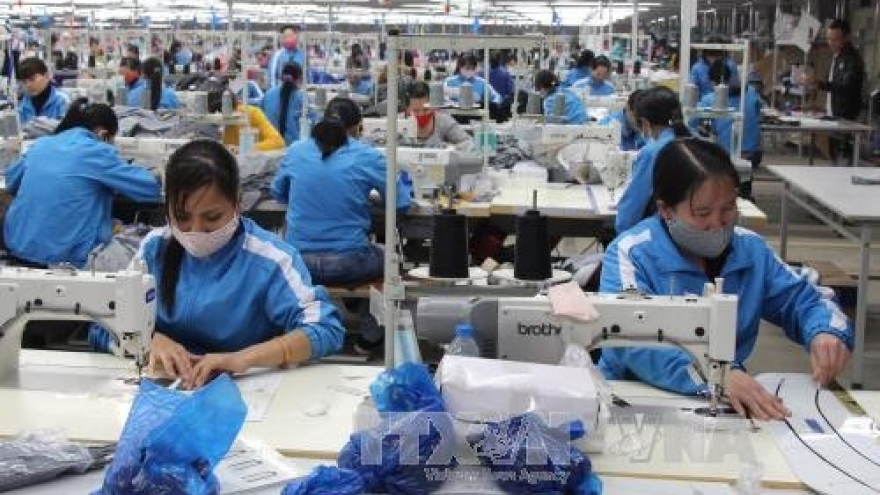Vietnam attends international garment fair in France
Ten companies from the Vietnam Textile and Garment Association (VITAS) attended the Apparel Sourcing Paris, a leading European sourcing trade fair, in Paris from September 18-21, to seek trade partners.
 |
The fair, held in February and September each year, displayed finished products like knitwear, casual wear, sportswear, outerwear and corporate wear. Information on the latest clothing trends was on display at booths and forums.
Cooperation and investment opportunities in the Vietnamese garment sector were introduced at a conference held by French non-profit Evalliance association, which was established in 2014 to connect the EU and Indochina in the industry.
According to the trade office of the Vietnamese Embassy in France, France is the Vietnamese textile industry’s fifth largest market in the EU.
Vietnam creates favourable conditions for French investors to study opportunities with domestic businesses and offers them preferential policies like corporate income tax cuts, material import tax cuts and reduced land hiring cost.
A representative from Evalliance expressed admiration for Vietnam’s rapid garment growth and the country’s strategies to lure investment.
On the occasion, a fashion show on the autumn-winter collection of Garment 10 Joint Stock Company, which specialises in office fashion, was held.
Pham Thi Bich Thuy, managing director of the company, said that the company has invested in modern production lines to improve product quality.
The company won contracts with some large customers at the fair, she added.
With export revenue of 3 billion euros every year, Vietnam is the sixth largest garment supplier for the EU. Experts said that the Vietnam-EU free trade agreement will allow Vietnam to consolidate its position as a leading exporter to the EU.
After the deal takes effect, 71% of Vietnamese exports to the EU will be duty free while other tax lines will be dropped in the following seven years.
Currently, Vietnamese products are levied taxes from 8-12% in the EU.
According to the deal, goods must have clear origin to enjoy preferential taxes.


